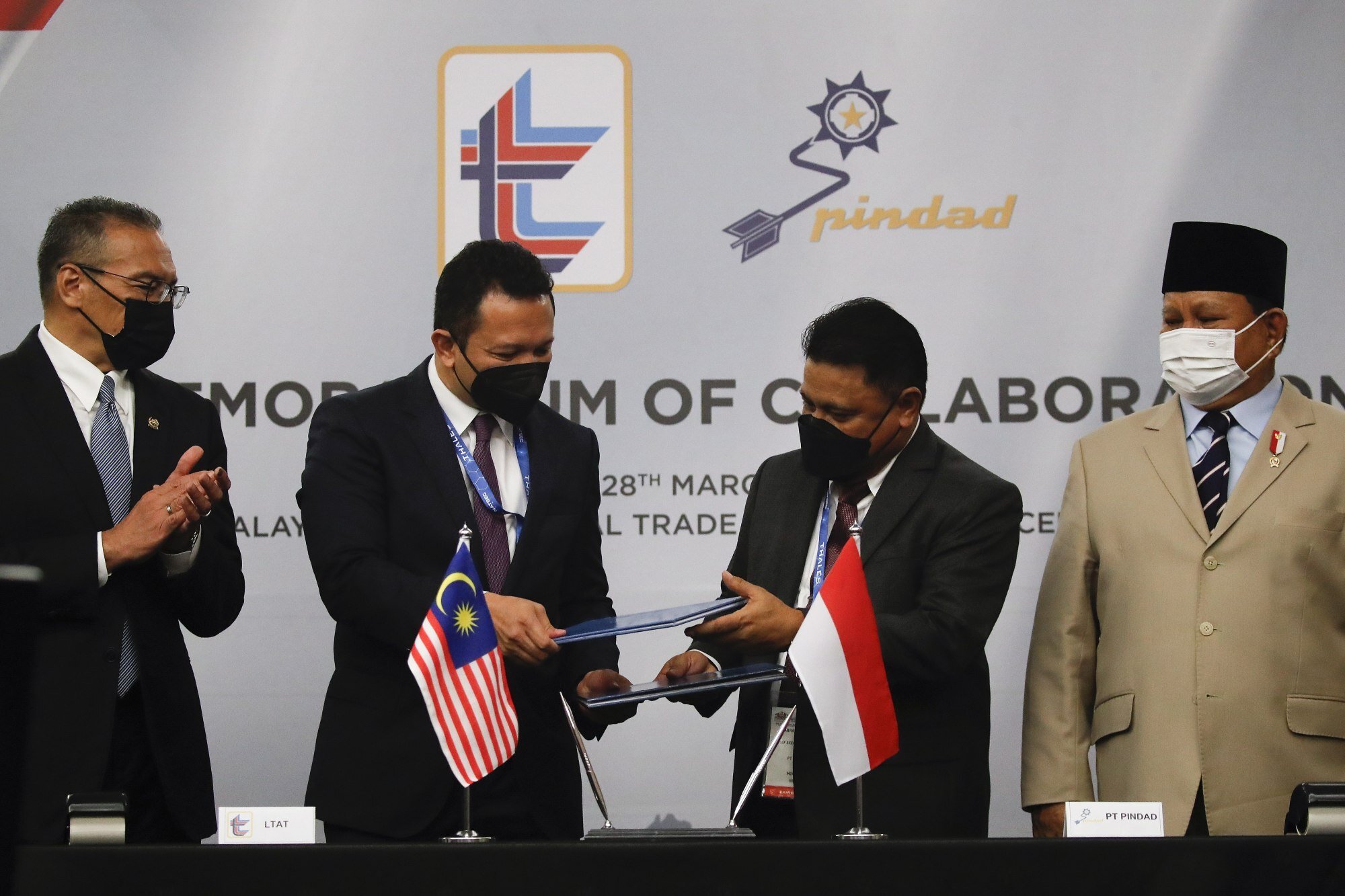5 min read
Indonesia, Malaysia, Philippines praise ‘zero kidnapping’ anti-piracy naval patrols
By: South China Morning Post on March 30, 2022 at 8:00 AM

Malaysia, Indonesia and the Philippines have lauded the success of a 2017 agreement to conduct joint patrols and share intelligence about activities in waters in their region once prone to kidnappings and pledged to deepen the pact.
The defence ministers of the three countries praised the Trilateral Cooperation Agreement (TCA) after a meeting on the sidelines of the biennial Defence Services Asia trade show in Kuala Lumpur.
The TCA was signed in 2017 amid a spate of piracy attacks and kidnappings by Islamist militants in the Sulu and Sulawesi seas.
As part of the agreement, the three nations also set up maritime command centres – in Tarakan for Indonesia, Tawau for Malaysia and Bongao for the Philippines – to collect information and coordinate patrols.
Hishammuddin Hussein, Malaysia’s Defence Minister, said on Monday that the success of the joint patrols was illustrated by the fact there were no kidnapping cases in the waters last year.
“I would like to emphasise that the TCA has been, and is, crucial in acting as a deterrent against crime-terror acts in the Sulu and Sulawesi seas,” he said, speaking during a joint press conference with the Indonesian Defence Minister Prabowo Subianto and the Philippines’ Defence Secretary Delfin Lorenzana.
“Proof of its success is the zero incident of kidnapping-for-ransom reported in the year 2021. We have shown the world that strong regional security cooperation is the way forward.”

According to the Singapore-based Regional Cooperation Agreement on Combating Piracy and Armed Robbery against Ships in Asia (ReCAAP) there were 10 attacks and six attempted attacks in the Sulu-Celebes Seas in 2016.
At the time, experts described the waters as the world’s fastest growing piracy hotspot and shipowners diverted their vessels elsewhere.
Hishammuddin on Monday said further expansion of the TCA beyond the current defence focus required a multi-agency approach.
The ministers also agreed to meet about the TCA at least once a year and to increase the three countries’ overall presence at sea.
Hishammuddin said the three nations were exploring the potential of land-based exercises too.
Zachary Abuza, a professor of Southeast Asia studies at Washington’s National War College specialising in terrorism, agreed with the ministers’ assessment of the success of the joint TCA patrols.
Abuza noted that the most significant aspect of the latest TCA ministerial meeting was the countries’ realisation that they actually need a single Secretariat or permanent headquarters, rather than the three individual offices they currently have, to coordinate operations.
“It’s very different if you have a single headquarters with representatives from all three countries they’re staffing it (with), so that when something happens in one jurisdiction you can make sure that the information is transmitted back to the relevant headquarters or operating authorities,” he said.
The professor added that he believed “there will be a real hesitancy on the part of Malaysia and Indonesia” to share intelligence with the Philippines because of “endemic corruption” in the archipelagic nation currently governed by President Rodrigo Duterte.
The US-based expert also highlighted that all three countries had limited maritime capabilities, so it was not surprising they were looking at an “army solution” to tackle the security situation in the once-troubled waters.
“All three countries have very limited maritime capabilities, and continue to see their greatest security challenges coming from the land. So it’s not surprising that they are still looking at army solutions to navy problems,” he said.
Related Posts
The Surprising Link Between Piracy and Covid-19
Poverty, institutional incapacity and budget cuts fuelled a surge in pandemic piracy. The lessons..
Armed Pirates Rob Offshore Platform in Bay of..
Armed pirates struck another platform operated by Pemex last week, forcing the crew to help them..
Security fears over weaponry as UK pulls licences..
A Government decision to revoke the licences of a British company providing ‘floating armouries’..



